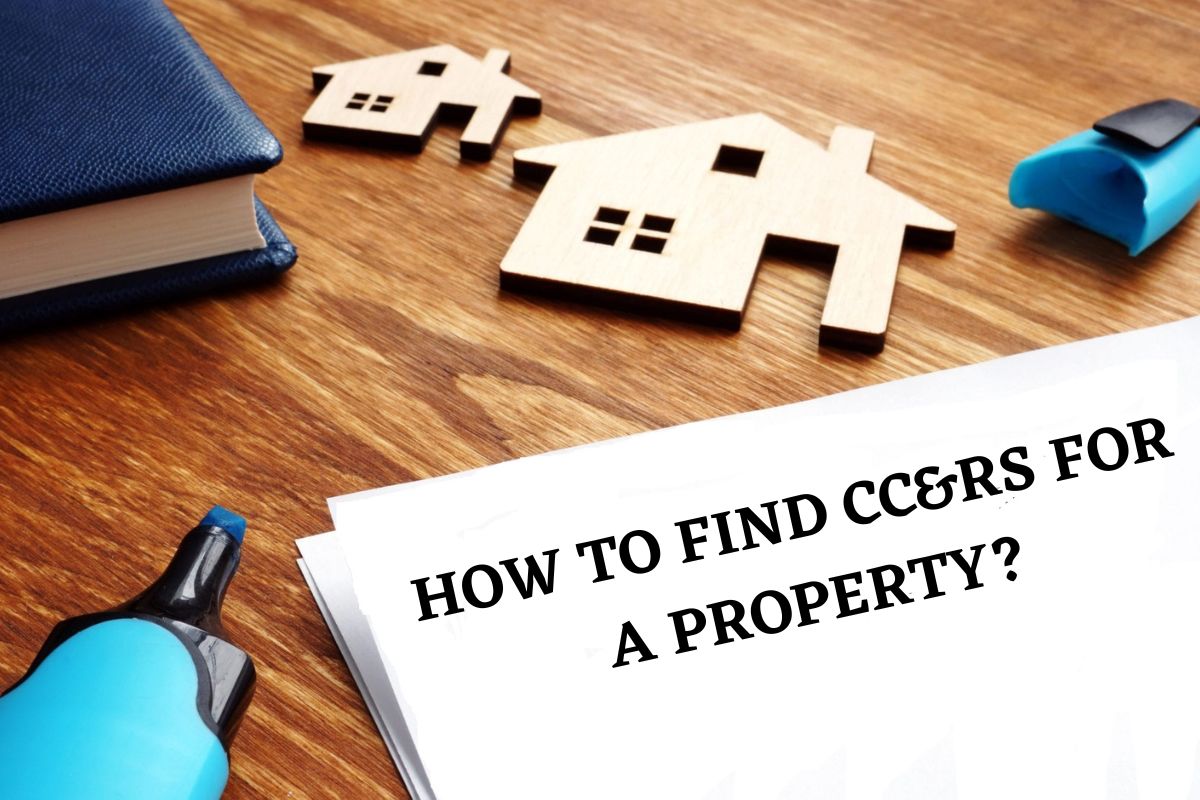 If you’re a homeowner, it’s important to be familiar with the Covenants, Conditions, and Restrictions (CC&Rs) that govern your property in a homeowners association (HOA).
These legal documents outline the rules and regulations that homeowners must follow, such as restrictions on home improvements, noise levels, and other issues that can affect the quality of life in the neighborhood.
In this blog post, we’ll provide a guide on how to find CC&Rs for a property in a homeowners association, whether you’re a new owner or an existing one.
If you’re a homeowner, it’s important to be familiar with the Covenants, Conditions, and Restrictions (CC&Rs) that govern your property in a homeowners association (HOA).
These legal documents outline the rules and regulations that homeowners must follow, such as restrictions on home improvements, noise levels, and other issues that can affect the quality of life in the neighborhood.
In this blog post, we’ll provide a guide on how to find CC&Rs for a property in a homeowners association, whether you’re a new owner or an existing one.
What is CC&Rs?
CC&Rs, short for Covenants, Conditions, and Restrictions, are legal documents that outline the guidelines and standards for properties within a homeowners’ association (HOA). They set forth the rules regarding property use, architectural design, and maintenance standards, ensuring the community maintains its aesthetic appeal and property values. CC&Rs are a crucial part of living in an HOA-governed community, as they help preserve a harmonious and orderly environment for all residents.What Goes Into CC&Rs?
Before we dive into the process of finding CC&Rs, it’s important to understand what these legal documents contain. CC&Rs are written agreements that outline the rules and regulations that govern a specific property or homeowners association. They are typically created by the developer or builder of the homeowners association and are designed to ensure that all residents follow the same rules. CC&Rs can cover a wide range of topics, such as:- Architectural guidelines
- Landscaping and exterior maintenance requirements
- Noise and nuisance restrictions
- Rules for pets and animals
- Parking restrictions
- Use of common areas and amenities
Find CC&Rs for a New Owner:
If you’re a new owner, finding the CC&Rs for your property is an important step in understanding your rights and responsibilities as a homeowner in an HOA. Here are a few ways to find CC&Rs for a new owner:1) Check the purchase agreement or contract:
The CC&Rs should be included in the purchase agreement or contract that you signed when you bought the property. Check this document to see if the CC&Rs are included.2) Contact the seller or real estate agent:
If you can’t find the CC&Rs in the purchase agreement or contract, contact the seller or real estate agent who handled the sale. They may be able to provide you with a copy of the CC&Rs.3) Check with the local county recorder’s office:
CC&Rs are recorded with the county recorder’s office in the county where the property is located. Contact this office to request a copy of the CC&Rs.4) Contact the homeowners association (HOA):
If your property is part of an HOA, contact the homeowner association to request a copy of the CC&Rs. The HOA is responsible for enforcing the CC&Rs, so they should be able to provide you with a copy.Find CC&Rs for an Existing Owner:
If you’re an existing owner and you need to find a copy of the CC&Rs, here are a few ways to do it:1) Check the original purchase agreement or contract:
 The CC&Rs should be included in the original purchase agreement or contract that you signed when you bought the property. Check this document to see if the CC&Rs are included.
The CC&Rs should be included in the original purchase agreement or contract that you signed when you bought the property. Check this document to see if the CC&Rs are included.
2) Check with the local county recorder’s office:
As mentioned earlier, CC&Rs are recorded with the county recorder’s office in the county where the property is located. Contact this office to request a copy of the CC&Rs.3) Request a copy of the CC&Rs from the HOA:
If your property is part of an HOA, you can request a copy of the CC&Rs from the HOA. The HOA is responsible for enforcing the CC&Rs, so they should be able to provide you with a copy.Other Options:
If none of the above options work, you may want to consider hiring a real estate attorney to help you locate the CC&Rs. A real estate attorney can also help you interpret the CC&Rs and understand your legal rights and responsibilities as a homeowner in an HOA.Conclusion:
Finding the CC&Rs for your property is an important step in understanding your rights and responsibilities as a homeowner. Whether you’re a new owner or an existing one, there are several ways to find CC&Rs, including checking the purchase agreement or contract, contacting the seller or real estate agent, checking with the local county recorder’s office, and contacting the homeowners association (HOA). It’s important to read and understand the CC&Rs for your property, as they outline the rules and regulations that you must follow as a homeowner. If you have any questions about the CC&Rs or need help interpreting them, consider hiring a real estate attorney to assist you.FAQs:
1) Are CC&Rs public records?
CC&Rs are not considered public records, but they are recorded with the local county recorder’s office and can be obtained by the public upon request.2) What are CC&Rs?
CC&Rs are legal documents that outline the rules and regulations that govern a specific property or homeowners association. They cover topics such as architectural guidelines, landscaping and exterior maintenance requirements, noise and nuisance restrictions, and use of common areas and amenities.3) Who enforces CC&Rs when there is no HOA?
When there is no HOA, the CC&Rs are typically enforced by the local government, such as the city or county.4) Is a CC&R the same as an HOA?
No, a CC&R is not the same as an HOA. CC&Rs are legal documents that outline the rules and regulations that govern a specific property or community, while an HOA is an organization that is responsible for enforcing the CC&Rs and managing the community’s common areas and amenities.Heywood Community Management specializes in homeowners' association (HOA) management in Arizona and surrounding areas such as Gilbert, Chandler, Tempe, Mesa, Queen Creek, Scottsdale, Phoenix, and more. Heywood HOA Management has actively been a part of Arizona's Real Estate market since 1933. With a single focus on community association management, Heywood Community Management is dedicating its resources to raising the community management standard of quality.
HOA business tips, intriguing topics, and freebies straight to your inbox.
Join the subscribers who get our content first.
No charge. Unsubscribe at anytime.

